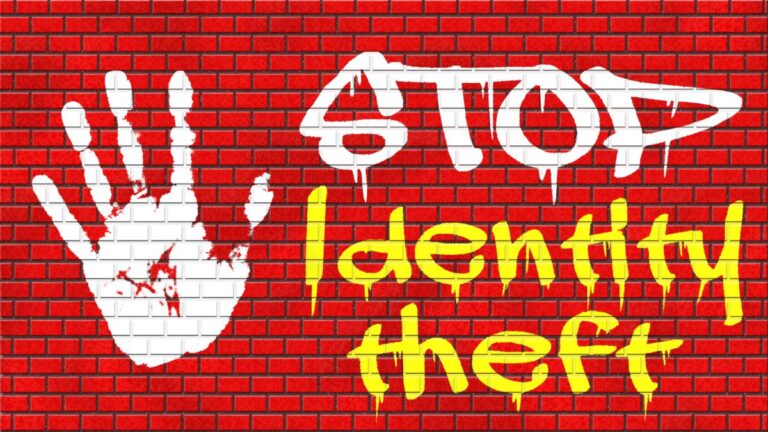What is Credit Repair in 2024

What is credit repair? Improving your credit score involves challenging any incorrect or obsolete data that may be present on your credit report. This process is known as credit repair and can simplify obtaining approval for credit cards or loans.
There are a few ways to dispute inaccurate information on your credit report. You can do it yourself or hire a credit repair company to do it for you.
Do your research if you decide to hire a credit repair company. Many scams are out there, so be leary.
The credit repair process can take several months, so be patient. Follow the steps carefully and dispute all inaccurate information on your credit report.
Why is Credit Repair Necessary?
Enhancing your credit score is essential since it broadens your financial prospects. With an enhanced credit score, you can effortlessly get your loan and credit card applications approved while benefiting from reduced interest rates. This can ultimately lead to substantial savings in the long run.
Here are some of the reasons why credit repair is valuable:
- Improved credit score: If you can successfully dispute inaccurate information on your credit report, your credit score will likely improve.
- Increased chances of getting approved for loans and credit cards: Having a solid credit score can help dramatically to get approved for loans and credit cards, making the process much smoother and less stressful. This is because lenders are more likely to lend money to people with a history of making timely payments.
- Lower interest rates on loans and credit cards: Having a solid credit score is the first step to qualify for lower interest rates on loans and credit cards. As a result, you could save a significant amount of money over time.
- Access to better financial opportunities: A good credit score can give you better financial options, such as mortgages, car loans, and business loans.
- Better job opportunities: Certain employers might review your credit score during the hiring process. If you have a good credit score, it could give you an edge over other job candidates.
- Higher self-esteem: Good credit can give you a sense of accomplishment and self-worth. It can also help you feel more confident about your personal finance.
Who Needs Credit Repair?
Anyone with inaccurate or outdated credit report information may benefit from credit repair. This includes people who have:
- Late payments: Even one late payment can harm your credit score. If you have a few late payments, you can improve your credit score by disputing them.
- Collections: If you have a debt that has gone to collections, it can damage your credit score. Credit scores can be improved by disputing or paying off the debt.
- Charge-offs: A charge-off is when a creditor writes off a debt as uncollectible. This needs to bode better for your credit score. Paying the charge-off will benefit your situation dramatically.
- Inquiries: Too many inquiries on your credit report can also damage your credit score. If you have a lot of inquiries, you should wait a few months before applying for new credit.
- Errors: If there are any errors on your credit report, you should dispute them. Errors can include incorrect information about your name, address, or Social Security number. They can also include information about late payments or collections you don’t owe.
It is your job to ensure your credit report is always current and error-free. AnnualCreditReport.com provides a complimentary copy from each of the three major credit bureaus once a year. Once you have your credit report, examining it closely for any mistakes is essential. If you come across any inaccuracies, you have the option of disputing them on your own or hiring a credit repair company to handle them. However, be sure to research and choose a trustworthy company if you decide to go that route, as there are many scams.
How Credit Repair Works
The credit repair process is disputing inaccurate or outdated information on your credit report. This can help improve your credit score and make getting approved for loans and credit cards more accessible.
The credit repair process can be broken down into the following steps:
- Get your credit report. Obtaining your credit report from each of the three major credit bureaus (Equifax, Experian, and TransUnion) is important to begin the credit repair process. You can get a free copy of your credit report from each bureau once per year at AnnualCreditReport.com.
- Review your credit report for errors. Once you have your credit report, carefully review it for any errors. Keep an eye out for things like late payments you don’t remember making, accounts you don’t recognize, debts that have been paid off but are still showing up on your credit report, and incorrect information about your name, address, or Social Security number.
- Dispute any errors. Dispute any errors you identify with the credit bureau. Disputing mistakes can be done online, by mail, or by phone.
- Follow up on your disputes. Once you’ve disputed an error, you must follow up with the credit bureau to ensure they’ve investigated your dispute and taken action. You can call the credit bureau or log in to their website.
- Be patient. The credit repair process can take several months, so be patient. Follow the steps carefully and dispute all inaccurate information on your credit report.
Here are some things you can expect during the credit repair process:
- It will take time. The credit repair process can take several months, so be patient.
- You may need to dispute multiple errors. It’s not uncommon to find numerous errors on your credit report. You’ll need to dispute each error individually.
- The credit bureaus may wait to remove the errors. There is a 30-day window that credit bureaus have to research your dispute and take action. They will not remove the error from your credit report if they find it accurate.
- You may need to provide documentation to support your dispute. If the credit bureaus don’t believe your dispute, they may ask you to provide documentation to support your claim. This could include things like:
- Proof of payment for a debt that is showing as unpaid
- A copy of your driver’s license to prove that your name is correct
- A copy of a court order to prove that a debt has been discharged in bankruptcy
- You may need to appeal the credit bureau’s decision. If the credit bureaus deny your dispute, you can appeal their decision. This process can take several more months.
The Benefits of Credit Repair
- Lower interest rates on loans and credit cards. You can secure lower interest rates on loans and credit cards if you have a good credit score. Lenders consider your credit score when assessing your risk, and those with higher scores are usually offered better rates. By obtaining a lower interest rate, you can save a considerable amount of money over a loan.
- Easier approval for loans and credit cards. A good credit score can make getting approved for loans and credit cards easier, even with a limited credit history. This can give you access to the money you need to buy a car, a home, or start a business.
- Better insurance rates. Insurance companies may use your credit score to determine your rates. Maintaining a healthy credit score can help you qualify for lower car, homeowners, and life insurance rates.
- More job opportunities. Employers can and may use credit scores to screen job applicants. A good credit score can show that you are responsible and reliable, making you more attractive to employers.
- Increased peace of mind. Good credit can give you peace of mind knowing you are financially stable and can borrow money when needed. It can also make renting an apartment or buying a home easier.
The Risks of Credit Repair
There are a few risks associated with credit repair, including:
- The credit repair firm is not legitimate. Many unscrupulous credit repair scam companies out there will take your money and not do anything to help you improve your credit. Research and choose a company with a good reputation.
- The company makes false promises. Refrain from falling for the narrative that your credit score will improve by a specific time. This is only sometimes possible, and have the right mindset about your expectations.
- The company charges high fees. Credit repair can be expensive, but choosing a company that offers affordable fees will provide peace of mind. Companies may charge a high monthly or flat fee for their services.
- The company damages your credit report. If a credit repair company makes a mistake when disputing information on your credit report, it could damage your credit score. Working with a company with experience and expertise in credit repair is an absolute must.
Researching and choosing a reputable and affordable credit repair company should be one of your top goals. Keep in mind that improving your credit score will require some effort on your part as well. While credit repair isn’t a quick fix, it can enhance your overall financial situation.
Here are some additional tips for avoiding the risks of credit repair:
- Get recommendations from friends or family members who have used a credit repair organization.
- Read reviews online.
- Check with the Better Business Bureau.
- Ask about the company’s fees and what services they offer.
- Get everything in writing.
- Don’t fall for quick results or guaranteed success.
- Be prepared to dispute information on your credit report yourself.
Credit repair can be a good option for people who have bad credit and want to improve their credit score. Weigh the pros and cons before deciding to use a credit repair company. It may not be for you.
Here are some factors to consider when deciding if credit repair is suitable for you:
- The severity of your credit problems. If you have minor errors on your credit report, you can improve your credit score without using a credit repair company. However, if you have a lot of negative information on your credit report, such as late payments, collections, or bankruptcies, you may need to use a credit repair company to improve your score.
- Your budget. Credit repair can be expensive, so choosing a company that offers affordable fees is important. Some companies require monthly fees, but some charge a fixed rate for their services.
- Your willingness to do the work. Credit repair is a challenging fix. It can take several months or even years to see significant results. You will also need to be willing to put in some work yourself, such as disputing inaccurate information on your credit report and making all of your payments on time.
Resources for Credit Repair
A few different people or organizations can help with credit repair. These include:
- Credit repair companies: These companies focus on correcting any inaccurate or outdated details on your credit report. They also provide assistance in communicating with your creditors to settle any outstanding debts and enhance your credit score.
- Credit Counselors: These organizations can help you develop a plan to improve your credit score. A credit counselor can help you negotiate with creditors and manage your debt.
- Non-profit credit counseling: These agencies offer free or low-cost credit counseling services. They can help you understand your credit report, develop a plan to improve your credit score and negotiate with creditors.
- The Federal Trade Commission (FTC): To ensure that you don’t fall victim to credit repair scams, the FTC has a website with valuable information on identifying and avoiding them. If you suspect you have been a victim of credit repair fraud, you can file a complaint with the FTC for further assistance.
FAQ:
1. What is the Consumer Financial Protection Bureau?
The Consumer Financial Protection Bureau (CFPB) is a government agency that was created in 2010 to protect consumers from unfair, deceptive, or abusive financial practices. The CFPB has a wide range of powers, including:
- Enforcing federal consumer financial laws.
- Providing consumer education and resources.
- Taking action against companies that violate the law.
- Working to make consumer financial markets more fair, transparent, and competitive.
The CFPB is a powerful tool for consumers harmed by unfair or deceptive financial practices. If you believe you have been a victim of financial fraud, you can file a complaint with the CFPB. Once you file a complaint with the CFPB, they will investigate and take appropriate measures if they discover the company has breached any laws or regulations.
The CFPB also offers a variety of resources to help consumers understand their financial rights and make informed financial decisions. You can visit the CFPB website to learn more about your rights, find educational materials, and file a complaint.
2. What is the Credit Repair Organizations Act?
The Credit Report Organizations Act (CROA) is a federal law enacted in 1970 to protect consumers from inaccurate or misleading information in their credit reports. The CROA requires credit reporting agencies to:
- Give consumers a copy of their credit report once a year at no charge.
- Correct inaccurate or outdated information in a consumer’s credit report within 30 days of receiving a dispute from the consumer.
- Not report information over 7 years old, except for bankruptcy information, which can be reported for 10 years.
- Only report information that is accurate and verifiable.
- Not report information that is obtained illegally.
- Not discriminate against consumers based on color, race, religion, national origin, sex, marital status, age, or because they exercised their rights under the CROA.
The Credit Repair Organizations Act (CROA) additionally forbids credit reporting agencies from participating in any deceitful or unjust practices, including:
- Making false or misleading statements about a consumer’s credit report.
- Charging excessive fees for credit reports.
- Failing to investigate disputes promptly.
- Refusing to correct inaccurate information.
3. What is the Fair Credit Reporting Act?
In 1970, the federal government passed the Fair Credit Reporting Act (FCRA) to ensure consumers are not affected by inaccuracies or misleading data in their credit reports. The FCRA gives consumers the right to:
- Get a copy of their credit report once a year from each of the three major credit bureaus (Experian, Equifax, and TransUnion).
- Dispute inaccurate or outdated information in their credit report.
- Place a fraud alert/security freeze on their credit report to prevent identity theft.
- Sue credit reporting agencies for violations of the FCRA.
The FCRA requires credit reporting agencies to:
- Be accurate and fair in the information they report.
- Not report information over 7 years old, except for bankruptcy information, which can be reported for 10 years.
- Investigate disputes promptly.
- Correct inaccurate information in a consumer’s credit report within 30 days of receiving a dispute from the consumer.
- Not report information that is obtained illegally.
- Consumers should never be mistreated or discriminated against because of their color, race, religion, national origin, sex, marital status, age, or for exercising their rights under the FCRA.
Ammar has started several online businesses and is a blogger who loves providing quality content to help others. He is involved with affiliate marketing, domain names, NFTs, and cryptocurrencies. Check out my blog if you want to learn more about these areas and business in general.






